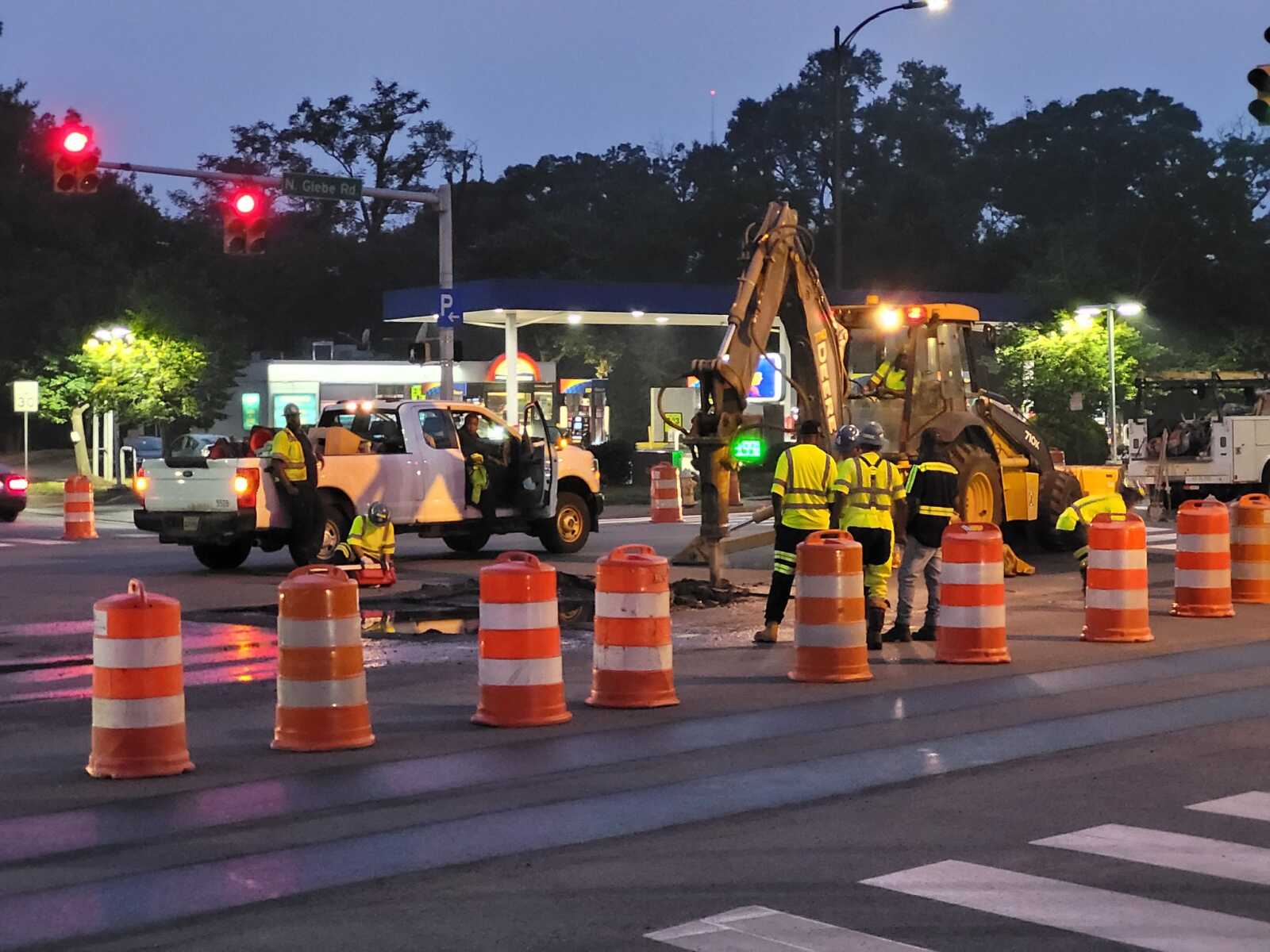
Some county employees now have a labor contract with Arlington County.
This weekend, the Arlington County Board adopted a resolution funding the tentative collective bargaining agreement between the county and the local union representing service, labor and trade workers.
County and American Federation of State, County and Municipal Employees (AFSCME) representatives negotiated a tentative collective bargaining agreement effective July 1, 2024 through June 30, 2027. The union ratified the agreement and the County Board reviewed the potential fiscal impacts of the 55-article agreement this November.
All that remained was to approve a funding resolution, the action taken this weekend. The provisions that will cost the county money will either be funded with tax increases, to the tune of $5-9 per average residential tax bill, or budget cuts — either .1% cuts across the board or the elimination of about four full-time employees.
“We’re very happy that we came to an agreement,” says Anthony Pistone, the president of AFSCME Local 3001, which represents Service, Labor and Trades workers in Arlington and Alexandria. “It’s not exactly what we want but we hope to do better next time and in the next three years.”
He praised both Arlington and Alexandria’s labor ordinances but said they do not go far enough. AFSCME hopes to change them so unionized employees have a greater say in day-to-day operations, Pistone said.
“For the time being, we’re excited for what we have,” he said.
Among other provisions, the contract outlines pay increases in the coming years and moves employees to a step-and-grade model — also recently adopted by the Arlington County police and fire departments — which proponents say better rewards experience and makes raises more predictable.
Pistone says the union is most excited about how the contract establishes committees focused on issues such as retirement, benefits and working conditions.
“We formed these committees because the labor laws in Virginia are anti-labor, and we need them to further the agenda on certain aspects of safety and also for better working environment for the people,” says Pistone, who works for Arlington’s Water, Sewer and Streets division. “It gives us a little more of a seat at the table, which is what matters to the guys on the ground.”
The committees also afford employees to sit down with their direct managers to discuss everything from vending machines to overtime. This structure is experimental and other unions have not adopted it, says Pistone.
“It’s unorthodox but it might work better, so it might be a great thing,” he said.
A decentralized approach was also important to unionized employees and why they chose AFSCME. The national union was instrumental in the initial labor laws that passed at the state level — allowing local governments in Virginia to collectively bargain with employee unions — and yet the organization remains grass-roots, he said.
“We have the opportunity to govern ourselves,” Pistone said. “Even though we’re under the umbrella of AFSCME, we do have ability to have our voices heard in a unique way.”

